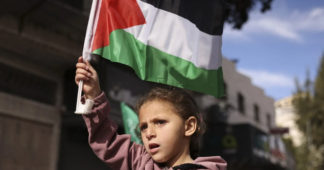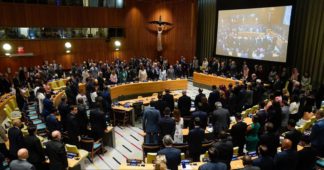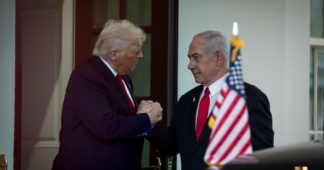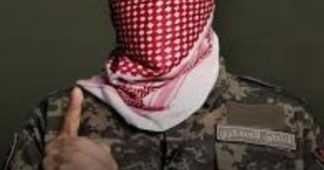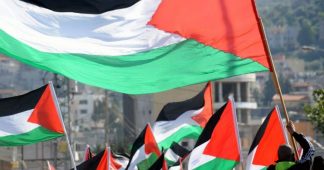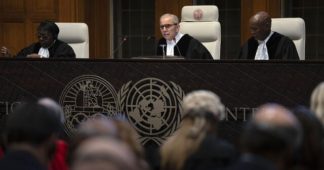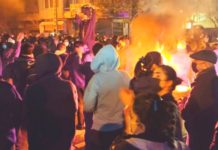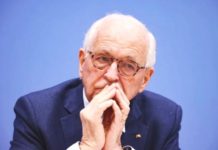By Marwan Emil Toubassi
In a visit that lasted no more than five hours, U.S. envoy Wetkof entered Gaza and left carrying messages that cannot be ignored. The surprise was not in the short duration of the visit, but in the brazenness of his statement afterward when he declared, “There is no famine in Gaza.”
This statement, along with others by U.S. House Speaker Mike Johnson and Ambassador Hagabi appears to be a deliberate prelude to a new phase in the management of the ethnic cleansing assault. A phase not only denying the humanitarian catastrophe but also pushing toward imposing a forced settlement under the pressure of starvation and genocide — a settlement that negates the national rights of our indigenous people on this land. It is a plan similar in essence to what the U.S. failed to enforce in other regions following its brutal wars.
Today, behind-the-scenes leaks reveal the details of a comprehensive American-Israeli plan based on the simultaneous release of Israeli captives, the disarmament of Hamas, and placing Gaza under an international-Arab administration led directly by the United States.
This is not a “peace initiative” in the traditional sense. Rather, it is a qualitative shift in the American role — from alleged mediator to direct godfather — aiming to enforce a new equation through force and take control of what is now called “the day after the war.”
From Managing the Assault to Engineering the “Aftermath”.
What is being proposed today is not a temporary framework for a solution but a comprehensive project to reshape Gaza politically, militarily, and even humanitarianly — including plans and threats to fully reoccupy the Strip. The United States wants to shift from being a backer of the genocidal war to the primary coordinator of the reconstruction process, minimizing the roles of regional and international actors to mere implementers or funders.
The scene is being orchestrated directly from the White House. Any future negotiations will not only involve Tel Aviv but Washington, which treats Gaza as a “zone requiring security and humanitarian management,” not as an occupied Palestinian territory whose occupation must end and upon which the Palestinian state must be established — something the U.S. fundamentally opposes.
Ironically, this American course contrasts with recent French and British announcements of their intention to recognize the State of Palestine this coming September — a step that remains symbolic unless accompanied by real international pressure to end the occupation, despite its political significance.
Hamas and the Weapon: Between Principle and Predicament .
For its part, Hamas has rejected the terms of the proposed plan and declared it will not give up its weapons unless the Palestinian state is established — a stance grounded in international law, which guarantees the right to resist occupation.
This position reflects a commitment to the path of resistance — which is not only military — but it is also politically and humanitarianly complex, especially amid an escalating catastrophe and Israeli-American attempts to exploit the tragedy to enforce a disguised surrender.
The picture becomes more opaque with the role played by the Muslim Brotherhood’s international organization, through regional states and affiliated groups, which may cast uncertain influence on Hamas’s political decision-making.
Reconstruction as a Gate to Dismantlement.
The danger lies not only in the plan’s details but in its core: a project to rebuild Gaza atop the ruins of Palestinian rights, outside the framework of legitimate representation, and under conditions that exclude the PLO and hand over the Strip to a functional administrative body devoid of sovereignty — one tailored to U.S. and Israeli policies.
What’s happening is a systematic dismantling of the Palestinian national liberation cause — transforming Gaza into a humanitarian-security file, isolated from the broader national context.
The PLO Between Marginalization and Liquidation
Despite being the sole legitimate representative of the Palestinian people, the Palestine Liberation Organization is deliberately being sidelined in every American scenario. This is made easier by its weakened performance and its role being overshadowed by the Palestinian Authority — an administrative-security body born out of the Oslo Accords.
There is pressure from the Americans, some Europeans, and certain Arab states to create “functional alternatives” that ensure Israel’s security stability and serve as local negotiation fronts acceptable to the West — even if this includes appointing figures from outside the national liberation legitimacy in either the West Bank or Gaza. All in preparation for a political phase tailored to occupation objectives.
But these alternatives — if they materialize — will never produce a genuine national solution. Instead, they will deepen division and open the door to internal conflicts that weaken the cause and prolong the tragedy.
Between Rejection and Revival
The U.S. plan is not merely a proposal; it is a political liquidation project that exploits blood and destruction to shape a new reality — one in which Palestinian political rights and the national liberation project have no place.
Confronting it requires more than verbal rejection or silence. It demands rebuilding the Palestinian position on the basis of national unity around a liberation project, and restoring the role of the PLO as a broad national front — through a genuine democratic process that places the leadership of the Palestinian struggle where it belongs: firmly carrying the banner of national liberation.
What the U.S. wants for Gaza — and for all of us Palestinians — is not merely an “administrative arrangement” but an erasure of rights, memory, struggle, and national identity.
This must be met with a high level of shared national responsibility — beginning with a comprehensive national dialogue that includes all components of our people. A dialogue aimed at building a strategy of steadfastness and political/popular resistance, setting the vision, defining programs, and providing tools — far from relying on continued U.S. mediation, avoidance, or delay. And away from promoting the illusion that current realities are unchangeable or that acceptance of the status quo is without alternative.
Declaring the State Under Occupation
In this regard, and as I’ve stated previously, the time has come — especially following growing international recognition, the 1988 Declaration of Independence, and the 2012 UN General Assembly resolution recognizing Palestine as a non-member observer state — to officially declare the State of Palestine under occupation.
A founding council should be formed until favorable conditions allow for democratic elections involving all our people, with the goal of ending the occupation and achieving full national independence.
This is a moment for sovereign national decision-making — a moment to defend dignity, rights, and the future, and to confront the challenges ahead.
We remind our readers that publication of articles on our site does not mean that we agree with what is written. Our policy is to publish anything which we consider of interest, so as to assist our readers in forming their opinions. Sometimes we even publish articles with which we totally disagree, since we believe it is important for our readers to be informed on as wide a spectrum of views as possible.
